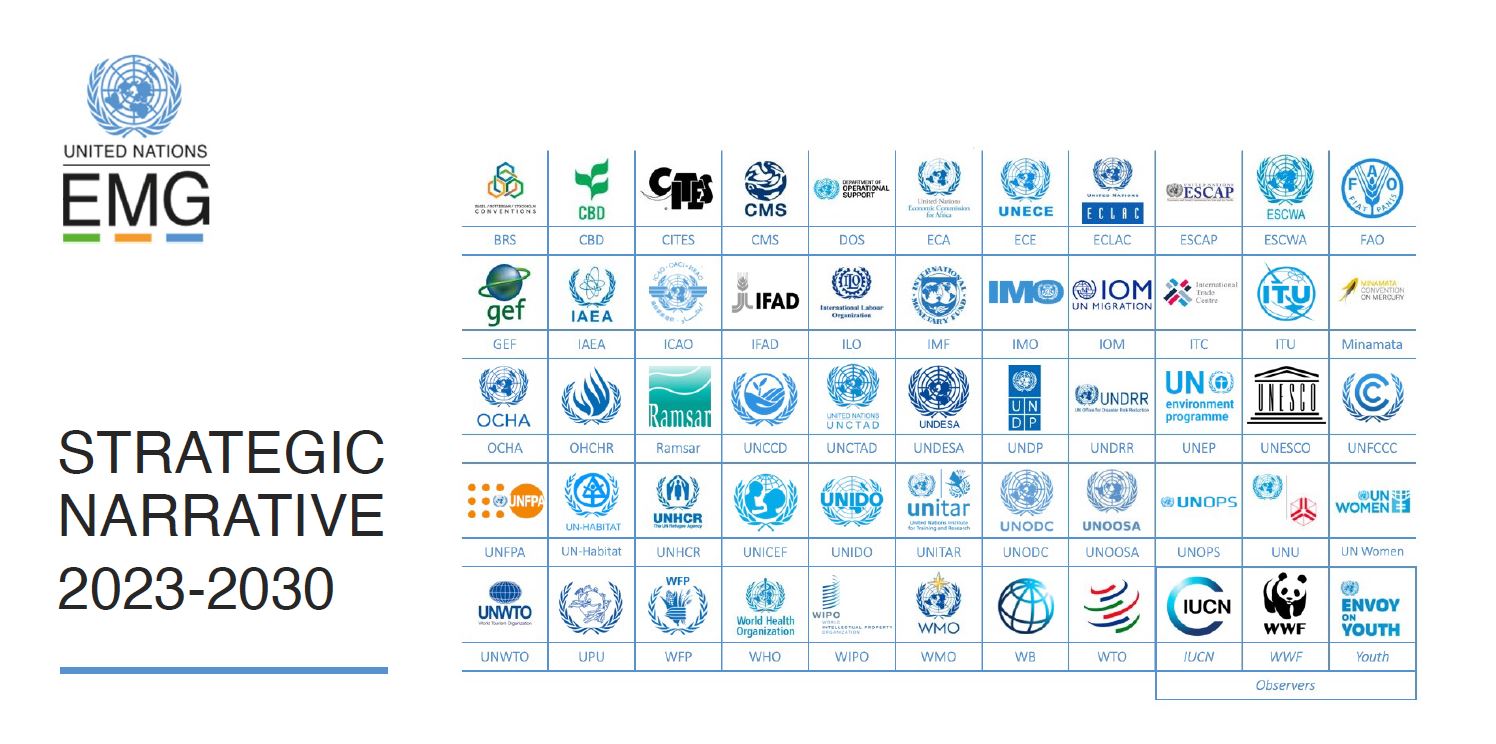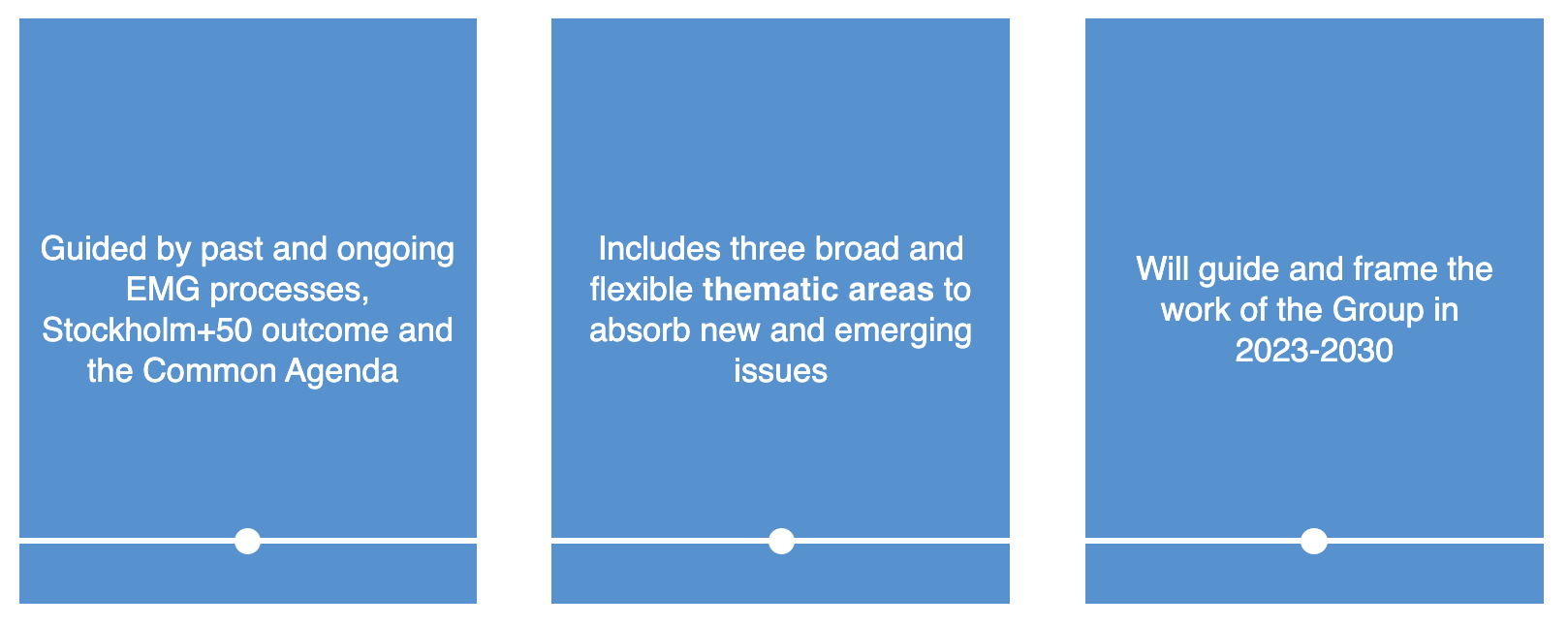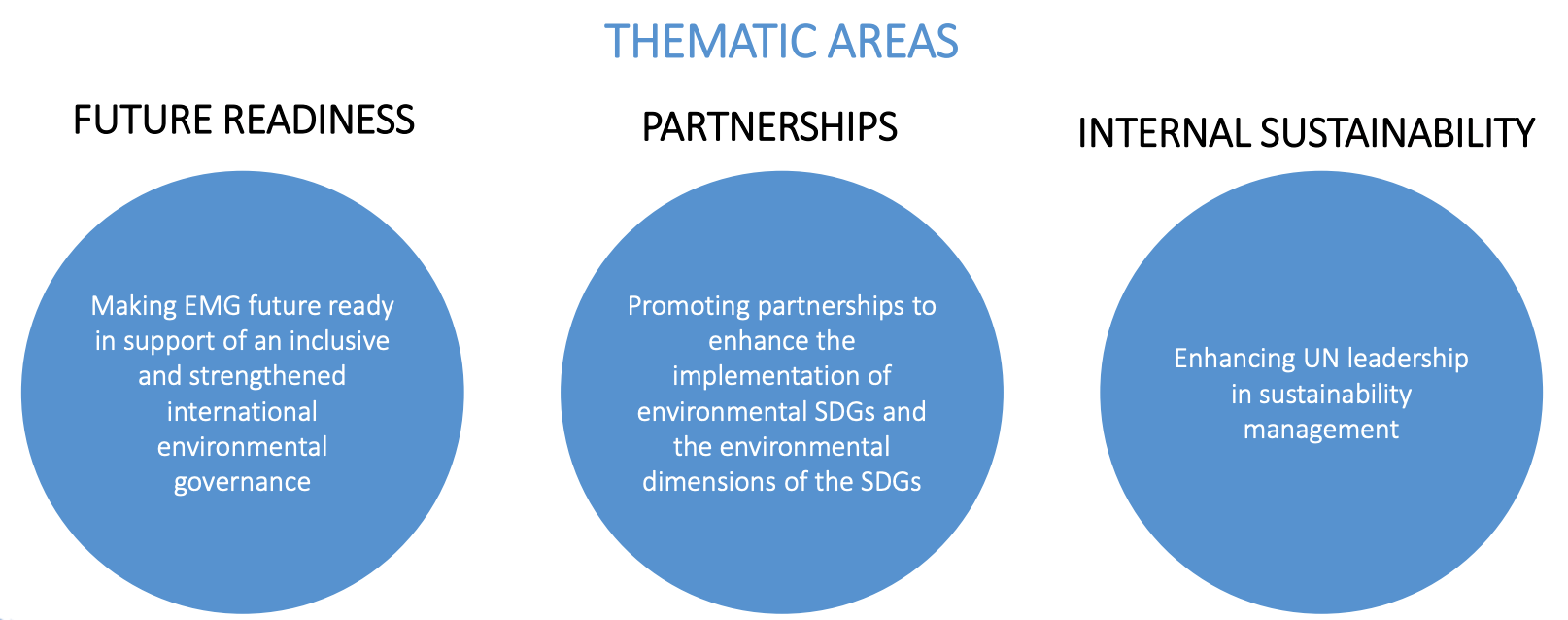
Introduction

Based on the EMG’s Terms of Reference, this strategic narrative aims to guide and frame the work of the EMG in 2023-2030, taking into account the results of past and ongoing EMG processes, the findings and recommendations of the EMG reports to the Stockholm+50 International Meeting, the UN Secretary-General’s report. A number of specific issues will be addressed under three broad thematic areas which will have the flexibility to absorb new and emerging issues.
EMG Strategic Narrative 2023-2030
Under each thematic area the EMG will seek to:
- Enhance UN system coherence in addressing interlinked, intergenerational environmental crises of energy, biodiversity, climate, food and health;
- Promote multilateral and multisectoral policy discussions and issue-based programming with respect to the international environmental and sustainable development agenda;
- Prepare UN system-wide strategies and common approaches to promote policy coherence;
- Prepare policy and normative guidance, guidelines and tools within the UN system;
- Facilitate systematic approaches to data and knowledge aggregation and communication;
- Ensure alignment with existing UN action plans and issue-based coordination platforms;
- Improve visibility and public awareness of the EMG, and position it as a platform for UN system knowledge sharing;
- Support the CEB, HLCP, HLCM and the UN Development Cooperation Office in mainstreaming and implementing environmental priorities across UN policies, programming, management and operations, including in UN Country Teams.

Thematic Areas
Thematic area 1: Making EMG future ready in support of an inclusive and strengthened international environmental governance
Following the EMG’s current work on biodiversity and pollution as well as looking at “Our Common Agenda”, work in this area would focus on emerging trends (such as the triple planetary crisis, macroeconomic uncertainty, technological innovation) that impact international environmental governance arrangements. Improved data gathering efforts, as well as management of existing UN system data, will be crucial in forecasting and detecting these emerging global trends. The EMG would explore ways in which the UN system as a whole can work together to mitigate adverse effects and capitalize on opportunities for further environmental action. This would allow the EMG to be better prepared, more proactively engaged and more reflective of considerations of intergenerational equity, gender, and human rights.
Thematic area 2: Promoting partnerships to enhance the implementation of environmental SDGs and the environmental dimensions of the SDGs
The EMG could explore ways to operationally link the UN system’s work so as to encourage Member States to undertake integrated approaches to sustainable development. Methodological approaches could include enhanced UN system-wide networking and enabling enhanced participation by various stakeholders in multilateral environmental governance, policy setting, and implementation. This would enable the UN system to support the coherent, integrated, and effective management of the global environmental commons as a key element in the achievement of the SDGs. The EMG could also interact more consciously with the UN Sustainable Development Group to open a dialogue aimed at assisting UN Member States to meet the environmental dimensions of the SDGs. The EMG should also consider going beyond usual UN partnerships, and look towards youth groups, civil societies, the private sector, judiciary organisations and other underutilized collaborators.
Thematic area 3: Enhancing UN leadership in sustainability management
The UN Sustainability Strategy outlines the vision of the UN system being a leader in integrating environmental and social sustainability considerations across its work in a systematic and coherent way, practicing the principles that it promotes and leaving a positive legacy. The EMG continues to support enhanced internal sustainability in the UN system, assisting entities to establish and meet sustainability targets. This could include the development of a well-interconnected and innovative ecosystem that supports the creation of dialogue and synergies between organizations, supports effective transfer of expertise and provides a forum for presentation of new research and innovation solutions. The EMG should work to support capacity building and accountability in the UN’s sustainability management efforts, while ensuring the UN leaves behind a positive legacy.